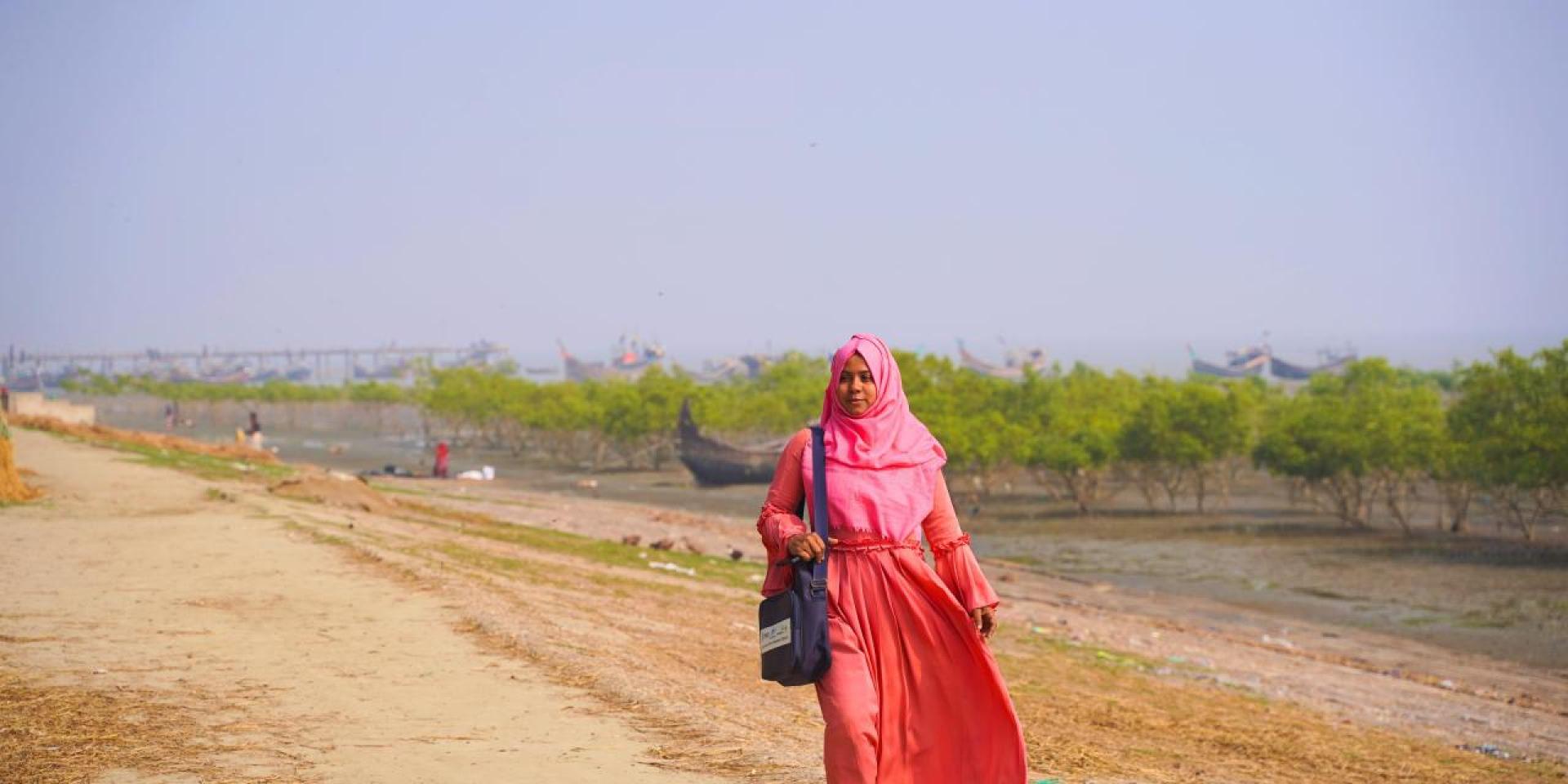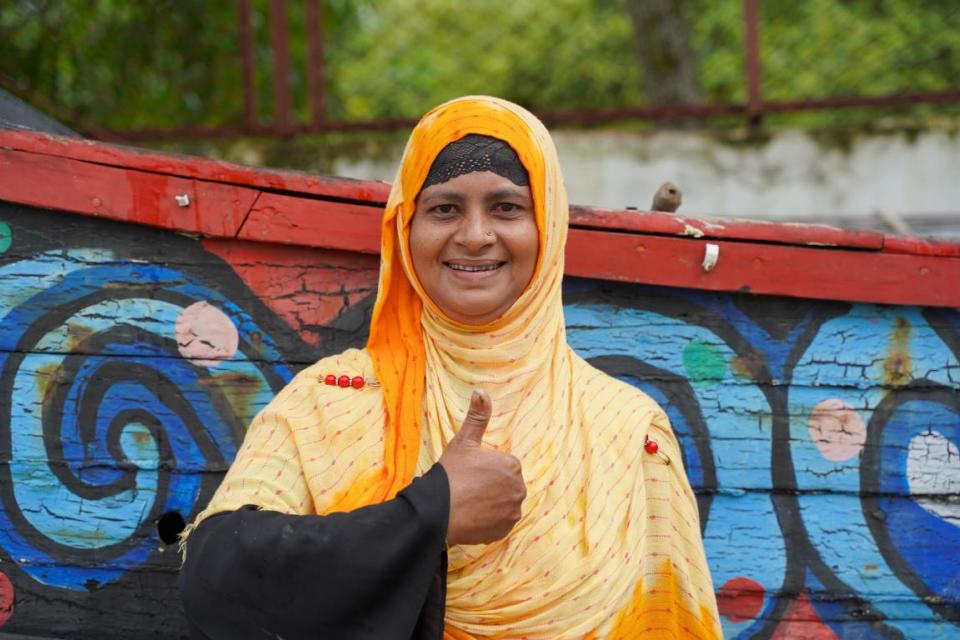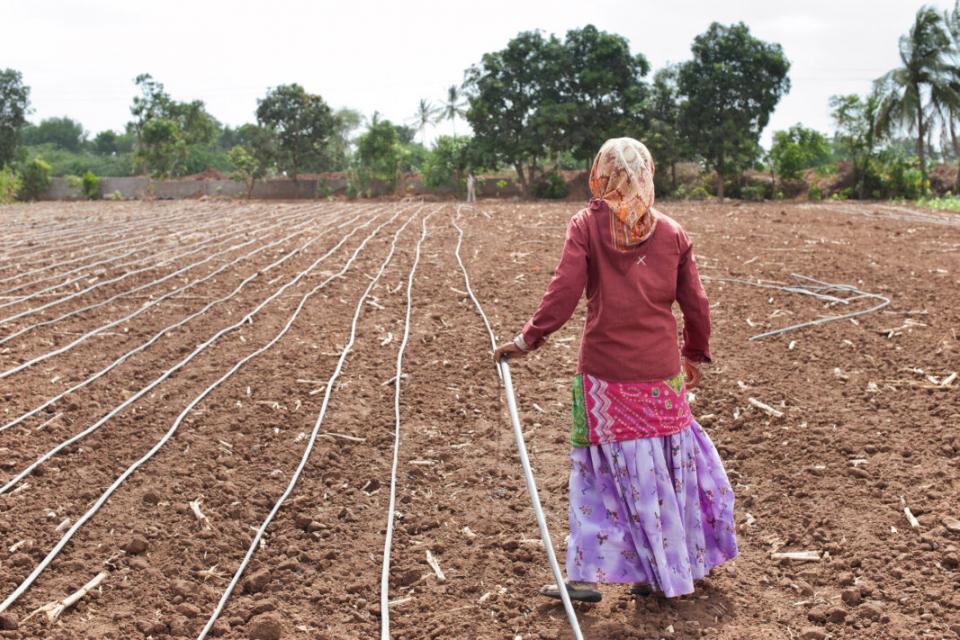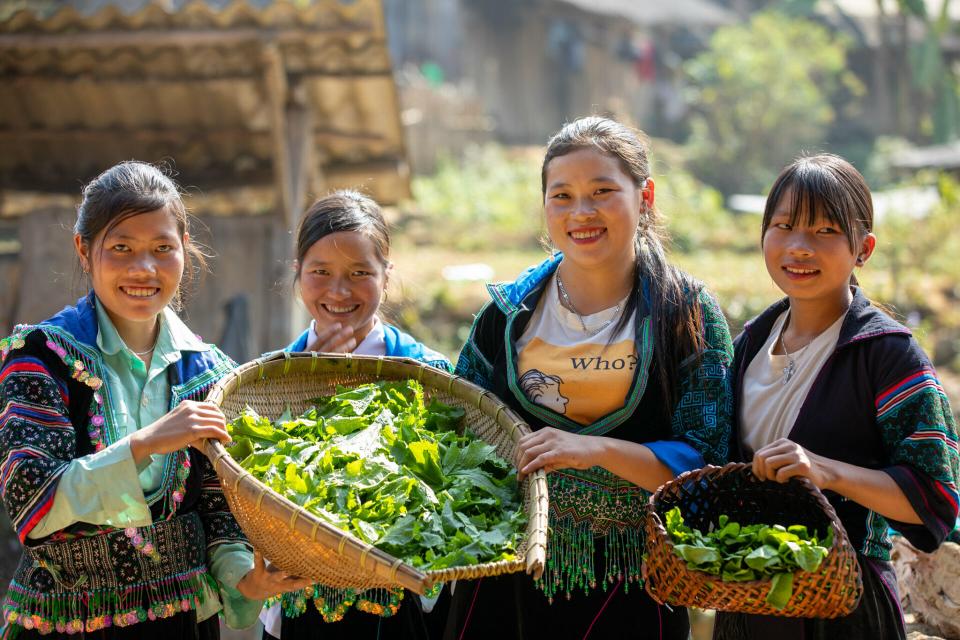Community Volunteers' Journey of Empowering Women
 Photo: WorldFish
Photo: WorldFish
Artisanal fishing communities in Bangladesh face a variety of challenges, such as climate change, overfishing, and socio-economic barriers. Women in those communities play a crucial role, often managing household finances, nurturing children, and supporting fishing activities but they often remain unnoticed and unrecognized and face significant barriers to economic independence.
USAID’s Enhanced Coastal Fisheries in Bangladesh (ECOFISH II) project has played a critical role in empowering women by encouraging sustainable income generation, enhancing nutrition, and conserving biodiversity through community-based initiatives. One of the most effective strategies employed by the project has been the engagement of 48 Community Volunteers (CVs) who work closely with 5007 women from artisanal fishing households in 47 fishing villages to enhance their livelihood opportunities and improve household nutrition. This, in turn, fosters environmental stewardship and sustainable fishing practices that benefit both local families and marine ecosystems.
After marrying, I moved to my in-laws' home in a fishing village in Cox's Bazar Sadar and became a community volunteer. I support 120 women from artisanal fishing families in income-generating activities, growing nutrient-rich vegetables, and providing basic literacy, business skills, and nutrition knowledge. Despite challenges like uncertain marine catches and fishing bans, their livelihoods are improving. – Community volunteer, Jannatul.
Bridging the Gap
Women Community Volunteers are recruited from fishing villages for their reliability and deep ties within their communities. These young women play a crucial role by engaging women in income-generating activities, organizing business literacy schools and meetings, promoting savings, and conducting awareness sessions on gender, nutrition, and biodiversity conservation. They receive specialized training in sustainable livelihood practices, nutrition-sensitive interventions, and facilitation skills to operationalize 169 Women Income and Nutrition Groups (WINGs). They manage 169 Business Literacy Schools, supporting 5,007 WING members through 24 sessions focused on business literacy, nutrition, gender equality, and biodiversity conservation. Community Volunteers play a crucial role in the ECOFISH II initiative by facilitating conditional cash transfers, enabling women to start their small homestead businesses and connect with local service markets.


